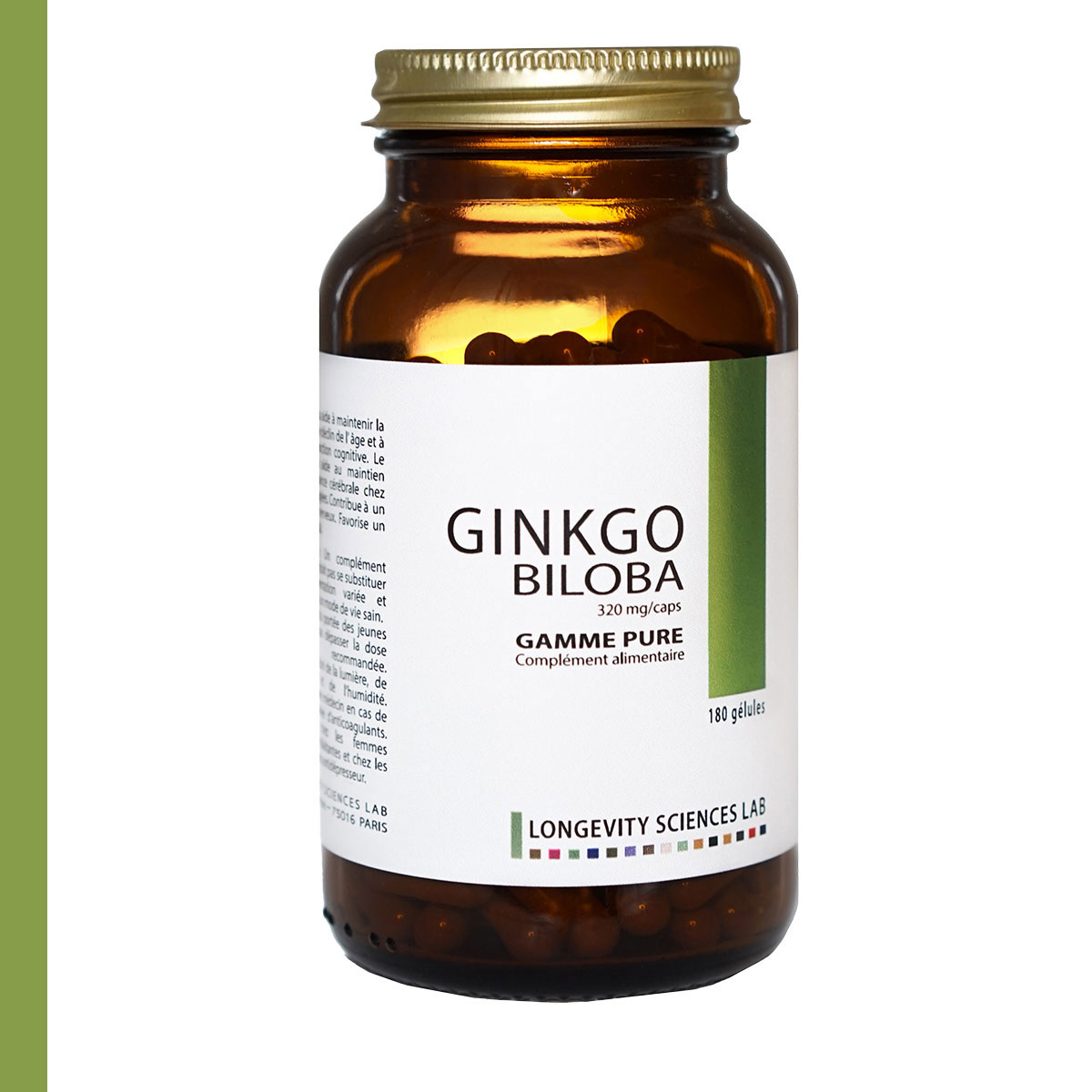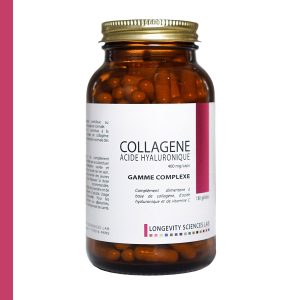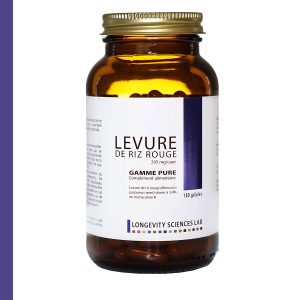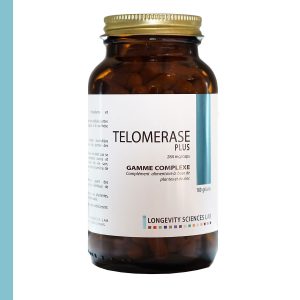Description
Longevity Sciences Lab offers its Ginkgo Biloba, a physiological corrector used to improve and support cognitive function, memory, concentration, blood circulation, and reduce anxiety.
Here are the properties described in the scientific literature:
- Improvement of cognitive function and memory
- Enhances concentration
- Improves blood circulation
- Antioxidant action
- Reduces inflammation
- Reduces stress and anxiety
- Reduces vision disorders and supports eye health
- Reduces symptoms of hearing disorders
- Provides relief from headaches and migraines
- Combats symptoms of premenstrual syndrome
Why choose our product to support your health?
Our products are manufactured in the heart of France, in the Loire Valley.
Through our partner laboratories, all our products are certified organic.
Our product is exclusively composed of natural ingredients and is guaranteed free of additives, GMOs.
The formulation of our products has been studied with the highest expertise to ensure optimal physiological correction for your well-being.
By following the indicated dosage, our physiological corrector will cost you €19 per month (for 6 months).
Invest in your health with Longevity Sciences Lab.
CRITICAL ANALYSIS OF SCIENTIFIC LITERATURE ON GINKGO BILOBA
Ginkgo biloba contains powerful antioxidants that allow to fight senescence
Ginkgo biloba contains antioxidants that fight the harmful effects of free radicals. Free radicals are highly reactive particles that are produced in the body and that damage healthy tissues, which accelerates senescence and the development of diseases by oxidation. Antioxidants like flavonoids and terpenoids, secondary metabolites of vascular plants highly concentrated in Ginkgo biloba, allow to fight and neutralize the harmful effects of free radicals. Therefore, the antioxidant levels of the Ginkgo biloba are one of the reasons for the plant’s many benefits on human health. Studies prove that neurodegenerative diseases, like Alzheimer’s or Parkinson’s disease, are fostered by oxidative stress and that Ginkgo biloba can play a considerable role in prevention and treatment thanks to its powerful antiradical properties (2). Indeed, a study goes even further, correlating the antioxidant effect of Gingko to a neuro and cardio protective effect. The prevention of mitochondrial dysfunctions, which affect essential internal organelles that supply the cells in many areas, is also reported (3).
Ginkgo biloba has veinotonic properties improving blood circulation and cardiac healt
Ginkgo biloba is considered as a promising therapeutic aid in the prevention of cardiovascular diseases through its vascular protection function. Indeed, a recent 2017 study revealed that a regular intake of Ginkgo biloba has a vasodilatory action (4). Ginkgo Biloba would increase blood flow, fostering the dilatation of blood vessels through better microcirculation, which is essential in the treatment of diseases like Raynaud’s disease. This common and painful condition is characterized by circulation disorders caused by emotions or cold temperatures. These disturbances are concentrated on limb extremities, especially fingers. They cause sensibility loss and punctual sensations of coldness. A British study proved a crisis reduction of 56% in 10 weeks thanks to the intake of Gingko biloba (5). Cardiac diseases affect millions of people according to the World Health Organization. They represent 31% of deaths in the world. Concerning cardiac health, a study on people affected by coronary disorders revealed that a two-week regular intake of Ginkgo biloba increased blood flow towards many human parts thanks to blood vessel dilatation (6). Similarly, another study demonstrated the same thing but this time with elderly people that experienced an improvement of their coronary blood flow. Indeed, advanced age diminishes endothelial function and therefore alters the coronary blood flow physiology. Data demonstrate that the Ginkgo biloba treatment leads to an increase of blood flow through an improvement of artery vasodilatory capacity, with a 56% dilatation increase by the flow of the brachial artery (7).
Ginkgo biloba reduces cognitive disorders and improves neurocognitive abilities
Ginkgo biloba is a major memory-aiding plant. Indeed, a French study of the Rennes Pharmacological Clinic Laboratory proved that out of a group of 18 men and women, of the average age of 69 years old with light elderly memory disorders, the group having taken some Ginkgo biloba an hour before the test demonstrated increased information treatment speed than the group that had received a placebo (8). Furthermore, Ginkgo biloba affects people without any apparent cognitive disorder, as the following study demonstrates. 48 men and women after a six-week intake of Ginkgo biloba were compared to a control group that were given a placebo. The first showed a more significant improvement at the task they were given by evaluating the speed of information processing capabilities (9). Ginkgo biloba has also demonstrated to contribute to an improvement at the Folstein test when combined with a conventional medical treatment. This test is an evaluation of cognitive capacities allowing to detect Alzheimer’s disease and dementia from its earliest symptoms, as a 2016 study indicates (10).
Reduction of anxiety disorder and dementia thanks to Ginkgo biloba
The special extract of Ginkgo biloba stabilizes the mood of elderly people suffering from cognitive disorders. Moreover, it was discovered that it also attenuates anxiety symptoms in people suffering from mental decline. Its clinical efficiency was therefore tested in younger patients suffering from anxiety for 4 weeks. The changes were significantly different compared to the placebo in the two control groups. The patients having received Ginkgo biloba tolerated it very well. It turned out to be able to enhance cognitive functions in patients affected by light dementia during a long-term treatment (11). A 2015 study investigated the consequences of a Ginkgo biloba treatment in patients affected by cognitive deficiency and dementia. The patients showing neuropsychiatric symptoms saw a significant improvement of their cognitive functions because of their 240 mg per day treatment. There was also over this same period a considerable improvement in everyday tasks. Furthermore, the study demonstrated that Ginkgo biloba could be administered safely (12).
Ginkgo biloba improves brain function and well-being
Studies revealed that Ginkgo biloba can enhance cerebral performance in healthy people. Indeed, certain studies argue that Ginkgo biloba can increase brain function and well-being. The results of these studies demonstrated a connection between Ginkgo biloba and memory improvement, concentration, and attention span. Thus, it has an impact on one’s general health state, enhancing the life quality of those without apparent disorders and those who present some (13, 14).
Ginkgo biloba, an ally of women suffering from premenstrual syndrome
Owing to its decongesting and neuroprotective properties, Ginkgo biloba was investigated by a study that evaluated its efficiency in relieving the decongestive symptoms faced by women with premenstrual syndrome. These can be various like irritability, anxiety, heavy legs, and headaches that occur a few days before a woman’s period. Ginkgo biloba especially relieves breast tension compared to the placebo given to the control group. The neuropsychological symptoms were also alleviated, making it an interesting alternative to therapies already used in the treatment of premenstrual syndrome, being additionally without inconveniences (15).
An increased demonstrated efficiency of Ginkgo biloba on diabetic retinopathy
The therapeutic efficiency of the Ginkgo biloba extract was evaluated in a double-blind study, over a period of 6 months, on 29 diabetic patients presenting early diabetic retinopathy as well as a reduced color sight. A trend towards improvement was highlighted in patients treated with the Ginkgo biloba extract, whereas those with the placebo saw their trend aggravate (16).
Ginkgo biloba contributes to the attenuation of tinnitus and has an effect on depression
A study investigated patients showing disorders such as tinnitus, an auditory sensation manifesting itself without there being any noise, but also anxiety and depression symptoms. The Ginkgo biloba extract revealed itself to be efficient in reducing neuropsychiatric symptoms in patients affected by dementia and tinnitus (17). Moreover, another recent 2021 study led on a group of people having hearing loss demonstrated a significant improvement of perception and a reduction in the intensity of tinnitus just 90 after being treated with the Ginkgo extract (18).
References:
- Professors Norman R. Farnsworth, Harry H. S. Fong, and Gail B. Mahady monographs on selected medicinal plants, Volume 1, World Health Organization, Geneva 1999
- R Bridi, FP Crossetti, VM Steffen, AT Henriques The antioxidant activity of standardized extract of Ginkgo biloba (EGb 761) in rats, Phytotherapy Research, August 2001
- W Zuo, F Yan, B Zhang, J Li, D Mei Advances in the Studies of Ginkgo Biloba Leaves Extract on Aging-Related Diseases, Aging and Disease, December 2017
- J Tian, W Liu, K Chen, Ginkgo biloba Extract in Vascular Protection: Molecular Mechanisms and Clinical Applications, Current Vascular Pharmacology, 2017
- AH Muir, R Robb, M McLaren, F Daly, J JF Belch, The use of Ginkgo biloba in Raynaud’s disease: a double-blind placebo-controlled trial, Society of Vascular Medicine, 2002
- YZ Wu, SQ Li, XG Zu, J Du, FF Wei, Ginkgo biloba extract improves coronary artery circulation in patients with coronary artery disease: contribution of plasma nitric oxide and endothelin-1, Phytotherapy Research, 2008
- Y Wu, S Li, W Cui, Z Zu, J Du, F Wang, Ginkgo biloba extract improves coronary blood flow in healthy elderly adults: role of endothelium-dependent vasodilation, Phytomedicine 15, Issue 3, February 2008
- H Allain, P Raoul, F LeCoz, JM Gandon, P d’Arbigny, Effect of two doses of ginkgo biloba extract (EGb 761) on the dual-coding test in elderly subjects, Clinical Therapeutics, June 1993
- J A Mix, W D Crews Jr, An examination of the efficacy of Ginkgo biloba extract EGb761 on the neuropsychologic functioning of cognitively intact older adults, The Journal of Alternative and Complementary Medicine, June 2000
- G Yang, Y Wang, J Sun, K Zhang, J Liu, Ginkgo Biloba for Mild Cognitive Impairment and Alzheimer’s Disease: A Systematic Review and Meta-Analysis of Randomized Controlled Trials, Current Topics in Medicinal Chemistry, 2016
- H Woelk, KH Arnoldt, M Kieser, R Hoerr, Ginkgo biloba special extract EGb 761 in generalized anxiety disorder and adjustment disorder with anxious mood: a randomized, double-blind, placebo-controlled trial, Journal of Psychiatric Research, Vol.41 issue 6, 2007
- MS Tan, JT Yu, CC Tan, HF Wang, Efficacy and adverse effects of ginkgo biloba for cognitive impairment and dementia: a systematic review and meta-analysis, Journal of Alzheimer Disease, 2015
- JA Mix, WD Crews Jr, A double-blind, placebo-controlled, randomized trial of Ginkgo biloba extract EGb 761 in a sample of cognitively intact older adults: neuropsychological findings, Human Psychopharmacology Clinical and Experimental, 2002
- A Cieza, P Maier, E Pöppel, Effects of Ginkgo biloba on mental functioning in healthy volunteers, Archives of Medical Research34 issue 5, October 2003
- A Tamborini, R Taurelle, [Value of standardized Ginkgo biloba extract (EGb 761) in the management of congestive symptoms of premenstrual syndrome], Revue française de gynécologie et d’obstétrique, 1993
- P Lanthony, JP Cosson, [The course of color vision in early diabetic retinopathy treated with Ginkgo biloba extract. A preliminary double-blind versus placebo study], Journal français d’ophtalmologie, 1988
- P Bruggemann, MG Soria, JB Schramm, B Mazurek, The Influence of Depression, Anxiety and Cognition on the Treatment Effects of Ginkgo biloba Extract EGb 761 ® in Patients with Tinnitus and Dementia: A Mediation Analysis, Journal of Clinique Medicine, July 2021
- CL Radunz, CE Okuyama, F Branco-Barrero, Clinical randomized trial study of hearing aids effectiveness in association with Ginkgo biloba extract (EGb 761) on tinnitus improvement Brazilian Journal of Otorhinolaryngology November 2020






